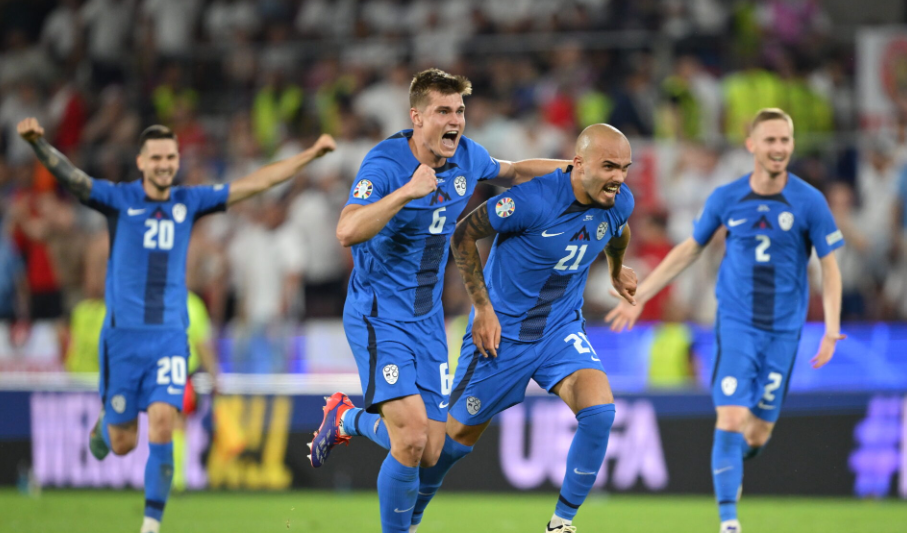For the first time in history, the Slovenian national football team has qualified for the knockout stages of a major competition. After playing a 0-0 draw with England in the last round of the group stage in Cologne, the Slovenian national team qualified for the round of 16 of the European Championships in Germany.
In the last group stage match – against England, Slovenia was chasing at least a point to secure its place in the knockout stages. Until that match, Slovenia had lost five times and drawn once against England. This time, however, despite only having the ball in its possession 24 percent of the time, the team withstood England’s mostly futile attacks and, with their third draw in this European Championship – after Denmark and Serbia, once again delighted the large fan crowd gathered to support them in Cologne.
Slovenia made its first appearance at the European Championships in 2000 and played at the World Cups in 2002 and 2010. While they were always knocked out after the group stage, this time, they have achieved the biggest success in the history of Slovenian national football. After a 0-0 draw between Denmark and Serbia, Slovenia finished third in the group with three points – after Denmark, which had the same number of points but ranked second, and England, which finished first with five points. Serbia has thus headed home with two points.
Selector Matjaž Kek started his third game of this European Championship in the same way as against Denmark and Serbia, and England’s Gareth Southgate made only one change from the previous game, replacing Trent Alexander-Arnold with Conor Gallagher – which was expected.
The Slovenian line-up did not enter the match with any fear, and had the first chance in the fifth minute, but Benjamin Šeško‘s header jump was too weak. Later, England had more ball possession, but they were not concrete in their playing.
In the 20th minute, they had a nice action and also scored through Bukay Saka, but the goal was disallowed for offside and in the 31st minute, Slovenian goalkeeper Jan Oblak had no problem with Harry Kane‘s first serious attempt.
Phil Foden was more dangerous in the 35th minute with a free kick from 29 metres, but Oblak tamed that ball, too. Slovenia were quite calm considering the opponent and the high stakes, and they also tested the English defence at times.
In the 40th minute, the English, who had possession of the ball for almost 75 percent of the first half, were once again striking against Slovenia, and after a cross from the left, Kane was a bit too late on the other post. The first half ended without any scores.
The opening of the second half followed a similar pattern, with the English having a futile advantage and making a few mistakes in receiving the ball, so that the Slovenians had no particular problems in keeping a satisfactory result in what is usually a critical period for them.
The pressure was mounting on the Islanders, who had won their only major title at the 1966 World Cup, and in the 58th minute, Šeško intervened twice right in front of the goal, while Oblak again caught the third attempt.
In those minutes, the Slovenians were squeezed into their own half, as Kek’s boys, more often than not, guarded a very acceptable 0-0. Josip Iličić entered the game in the 75th minute, probably because of his ball retention skills, much to the delight of the fans.
The English continued to look for a way to the Slovenian goal, while the Slovenians were getting on their nerves by lying down quite often, buying time for the final goal. Cole Palmer threatened to get the ball by Oblak again in stoppage time, but even then, Oblak stood his ground for the biggest success in football history of the Slovenian national team.
STA


